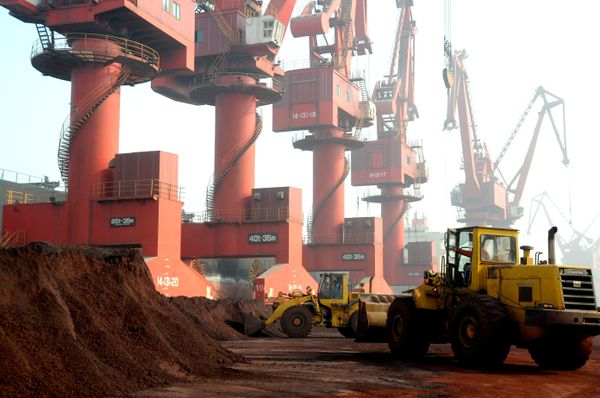BEIJING, June 4 — Alarm over China's stranglehold on critical minerals grew on Tuesday as global automakers joined their United States (US) counterparts to complain that restrictions by China on exports of rare earth alloys, mixtures, and magnets could cause production delays and outages without a quick solution.
German automakers became the latest to warn that China's export restrictions threaten to shut down production and rattle their local economies, following a similar complaint from an Indian electric vehicle maker last week.
China's decision in April to suspend exports of a wide range of critical minerals and magnets has upended the supply chains central to automakers, aerospace manufacturers, semiconductor companies, and military contractors worldwide.
The move underscores China's dominance of the critical mineral industry and is seen as a form of leverage by China in its ongoing trade war with US President Donald Trump.
Trump has sought to redefine the trading relationship with the US's top economic rival China, by imposing steep tariffs on billions of dollars of imported goods in hopes of narrowing a wide trade deficit and bringing back lost manufacturing.
Trump imposed tariffs as high as 145 per cent against China only to scale them back after stock, bond, and currency markets revolted over the sweeping nature of the levies. China has responded with its own tariffs and is leveraging its dominance in key supply chains to persuade Trump to back down.
Trump and Chinese President Xi Jinping are expected to talk this week, White House spokeswoman Karoline Leavitt told the press on Tuesday, and the export ban is expected to be high on the agenda.
"I can assure you that the administration is actively monitoring China's compliance with the Geneva trade agreement.
"Our administration officials continue to be engaged in correspondence with their Chinese counterparts," she said.
Trump has previously signalled that China's slow pace of easing the critical mineral export ban represents a violation of the Geneva agreement.
Shipments of the magnets, essential for assembling everything from cars and drones to robots and missiles, have been halted at many Chinese ports. At the same time, license applications make their way through the Chinese regulatory system.
The suspension has triggered anxiety in corporate boardrooms and capitals of nations — from Tokyo to Washington — as officials scramble to identify limited alternative options amid fears that production of new automobiles and other items could grind to a halt by summer's end.
"If the situation is not changed quickly, production delays and even production outages can no longer be ruled out," said Germany's auto lobby head Hildegard Mueller to Reuters on Tuesday.
Minerals industry consultant and former US assistant secretary of state for energy resources during Trump’s first term Frank Fannon said the global disruptions are not shocking to those paying attention.
“I do not think anyone should be surprised how this is playing out. We have a production challenge (in the US), and we need to leverage our whole-of-government approach to secure resources and ramp up domestic capability as soon as possible. The time horizon to do this was yesterday,” he said.
Diplomats, automakers, and other executives from India, Japan, and Europe were urgently seeking meetings with Beijing officials to push for faster approval of rare earth magnet exports, sources told Reuters, as shortages threatened to halt global supply chains.
A business delegation from Japan will visit Beijing in early June to meet the Ministry of Commerce over the curbs, and European diplomats from countries with big auto industries have also sought "emergency" meetings with Chinese officials in recent weeks, Reuters reported.
India, where Bajaj Auto warned that any further delays in securing the supply of rare earth magnets from China could "seriously impact" electric vehicle production, is organising a trip for auto executives in the next two to three weeks.
In May, the head of the trade group representing General Motors, Toyota, Volkswagen, Hyundai, and other major automakers raised similar concerns in a letter to the Trump administration.
"Without reliable access to these elements and magnets, automotive suppliers will be unable to produce critical automotive components, including automatic transmissions, throttle bodies, alternators, various motors, sensors, seatbelts, speakers, lights, motors, power steering, and cameras," the Alliance for Automotive Innovation wrote in the letter.
— Reuters
[caption id="attachment_403073" align="aligncenter" width="1085"] The Chinese flag is placed next to the elements of Gallium and Germanium on a periodic table, in this illustration on July 6, 2023. — Picture by REUTERS[/caption]
The Chinese flag is placed next to the elements of Gallium and Germanium on a periodic table, in this illustration on July 6, 2023. — Picture by REUTERS[/caption]




